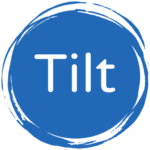CASE STUDY
Agile Transformation Journey
At Amnesty International UK
Creating more moments of celebration in three months than in five years
In 2020, arguably one of the most challenging years for the charity sector, Amnesty International UK’s Digital Engagement team had their best year on record.
This is the story of how Carmen and her team overcame some common challenges, embraced agile ways of working, embedded a new mindset and culture and smashed their targets – giving them more moments of celebration in three months than they’d had in five years. Most importantly, this is about how they delivered (and continue to deliver) record breaking results for the people that matter most, their donors and rights holders.
The challenge
The team started with challenges very common in the charity sector
- Ambitious targets and no extra budget or headcount
- Lack of clear common goals and objectives
- Siloed ways of working and poor information sharing
- Reactive rather than strategic decision making


“I knew the only way to achieve these targets would be by looking at where we could trim the fat. The team operated well but, as always, had some disfunction. It was clear that there were some challenges in our ways of working like silos, poor information sharing, too much time spent in meetings and lack of clear common objectives. I wanted to try something new to tackle this and hopefully make us a happier, more focussed and productive team.”


Carmen Barlow
HEAD OF COMMUNICATIONS & ENGAGEMENT
"This wasn't your usual 'efficacy issue'. This was cultural. We needed a change in mindset, culture and ways of working"
Here's what we did
The team had already had a go themselves
Determined to overcome these challenges, Carmen and her team dived in.
“Having read the book Scrum, I thought I could do this. I ran a sprint. It was a disaster. I had failed. So I realised I needed to get someone to help me with this. That’s when we started working with Eleanor and her team. Eleanor stood out, her USP was to get us ‘independent as quickly as possible’. I liked this. Otherwise it’s not an efficiency.”


9 weeks
3 sprints
6 days of coaching
27 hours of team time
0 training
Learning through doing


The outcome
After 9 weeks the team were displaying more agile behaviours
- Committing to specific, shared outcomes that would deliver in 2 weeks
- Making all their work visible in one Trello board
- Running 15 minute daily standup meetings to swap key information and track progress against goals
- Supportively challenging new work that might distract from their goals
- Working together to share work between them, supporting each other to learn new skills
- The manager was doing less information sharing and had time to focus on strategy
The work you have done with us has been a complete transformation and exceeded my expectations; we have better planning and communication, greater integration across work streams, more effective and considerate collaboration and a general lift in morale and productivity. A huge success!


Carmen Barlow
HEAD OF COMMUNICATIONS & ENGAGEMENT
The results
The results came from the inside out
- Less time spent in meetings
- A more strategic approach
- Improved collaboration
- Silos broken down
- More integration with other teams
- Smooth transition to remote working
After 1 year the team exceeded all of their key targets for 2020. For digital fundraising it was the best year they had ever had.


Future-proof
We were incredibly lucky to switch to agile when we did.The new way of working has meant that remote working through COVID-19 has been an easy change to manage. I can’t recommend this way of working enough.
I deeply believe as a charity we owe it to our donors and right holders to do the best job in the most efficient way possible. Agile working helped us to do that.





